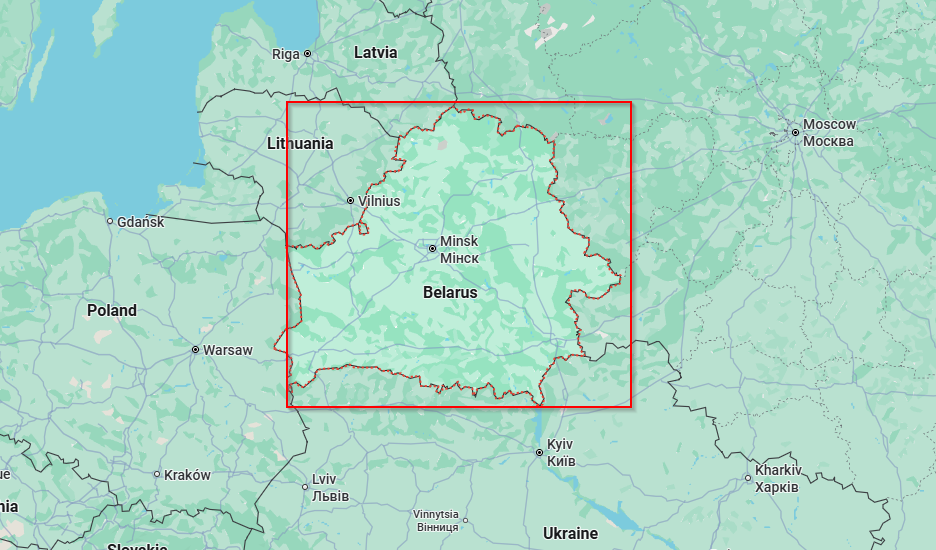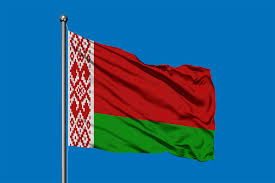Why Belarus? Main Features for Businesses
- Strategic Location: Belarus links the EU, Russia, and Central Asia, with robust road and rail networks and membership in the Eurasian Economic Union (EAEU).
- Competitive Cost Structure: Low labor/utility costs and relatively simple tax regulations for many sectors.
- Special Economic Legal Regimes: Notably the High-Tech Park (HTP) for IT/tech, the Great Stone Industrial Park (China-Belarus park), and free economic zones, all offering significant tax privileges.
- Attractive for: Export-oriented manufacturing, logistics, IT (especially HTP companies), agri-food, and joint ventures with Russia/EAEU partners.
- Workforce: Highly skilled and STEM-oriented, with one of the highest literacy rates in the world; moderate wage costs.

Core Legal Forms of Companies
| Legal Form | Minimum Capital | Founders | Key Features |
|---|---|---|---|
| Unitary Enterprise (UE) | No formal minimum | 1 legal/physical | No shares, wholly owned by founder |
| Limited Liability Company (OOO/LLC) | BYN 0.00 (no minimum) | 1–50 | Most common; separate legal entity |
| Additional Liability Company (ODO) | BYN 0.00 | 1–50 | Similar to LLC; broader liability for members |
| Joint Stock Company (JSC, OAO/ZAO) | BYN 2,500 (≈ $1,000) | 1+ | Open (public) or closed (private); share-based |
| Branch/Rep. Office | None | Foreign parent | Not a separate legal entity |
Key Points:
- 100% foreign ownership allowed in most cases.
- No residency requirement for directors or shareholders (though notaries may require presence).
- Shareholders can be individuals or legal entities.
Taxation System and Optimization Opportunities
Corporate Income Tax (CIT)
- Standard Rate: 18% (as of 2025) on worldwide profits of resident companies.
- Reduced Regimes: HTP residents – 0% CIT; free economic zone (FEZ) – 0% for 5 years, then 50% reduction (9%).
- Tax Base: Net profit, with standard adjustments for depreciation, non-deductibles, etc.
- Loss Carry-forward: 10 years (limits may apply).
- Group Relief: Not available.
- Optimization: Utilizing HTP/FEZ status massively reduces effective CIT; focus on export and IT structures.
Other Key Taxes
| Tax | Rate/Threshold (2025) | Notes |
|---|---|---|
| VAT | 20% standard; 10% (food/pharma); 0% export | Mandatory if turnover > BYN 2 million/year |
| Social Security | Employer: 34%; Employee: 1% | On gross salary, subject to annual cap |
| Withholding | 12% (dividends), 10% (interest/royalties) | Treaty reductions apply |
| Property Tax | 1% of value (buildings); 0.2% (land) | Municipality-specific |
| Environmental | Varies | Water, waste, emissions |
VAT Registration: Obligatory if annual income from sales of goods/services exceeds BYN 2 million (about $600,000); voluntary below this.
Ease of Doing Business & Government Policy
- Business Environment: Belarus ranks ~50th internationally, very strong in starting a business and trading across borders (customs clearance generally efficient).
- Digital Process: E-filing, online registers, and e-invoicing are available but not universal.
- Lenient Sectors: IT/tech (especially HTP), export manufacturing, logistics, agriculture (with benefits for innovation and exports).
- Stricter Sectors: Financial services, defense, chemicals, and “strategic” assets (often require specific licenses or investment screening).
- Foreign Exchange: Currency controls exist, with mandatory sale of some FX earnings.
- Labor Market: Straightforward hiring/firing, but collective bargaining is common in large firms.
Company Formation: Process, Cost, and Shareholding
Formation Steps
- Company Name Search/Reservation: Online or at the One-Stop Service Center.
- Document Preparation: Charter, foundation agreement, director/shareholder details.
- Bank Account Opening: For capital deposit (JSC only).
- Notarization: Charter (required); can use model charter for OOO to speed up.
- Registration: Submit with registration fee (approx. BYN 290 ≈ $100).
- Tax Registration: Automatic.
- Other registrations: Statistical, municipal, social security.
Timeline: Typically 3–5 business days for OOO; JSC or branch structure may take 1–2 weeks.
| Item | Typical Cost (2025) |
|---|---|
| State Registration Fee | BYN 290 ($100) |
| Notary Fees | BYN 200–500 ($70–$200) |
| Share Capital | OOO: BYN 0.00, JSC: BYN 2,500 |
| Legal Services | $500–$1,500 (full package) |
Shareholding: 100% foreign ownership allowed; at least one natural or legal person; no local shareholder required.
Grants and Funding Opportunities
National & Special Regimes
- HTP Grants/Benefits: Zero CIT, zero VAT for software exports, zero property tax, no customs duty for imported R&D equipment; simplified work permits for foreign IT experts.
- FEZ/Industrial Park Incentives: CIT holidays, VAT and property tax exemptions, customs incentives, infrastructure support.
- State Innovation Fund Grants: Small innovation project grants up to BYN 1 million ($370,000); competitions for R&D co-financing.
- Soft Loans/Co-financing: State ‘Development Bank’ supports export, high-tech, and industrial projects.
- Other: Some regional incentive programs for SMEs, job creation, innovative agri/food projects.
International Support
- World Bank/EIB/EBRD: Limited SME/project finance in certain non-sanctioned sectors.
- Venture Funding: Niche, but emerging especially via HTP accelerators and startup hubs.
Governance and Compliance
- Annual Reporting: All companies must file annual IFRS or Belarus GAAP statements; OOO by March 31st, JSC and regulated entities earlier.
- Audit: Mandatory for JSC, large OOO, HTP residents, and certain sectors.
- Tax Filings: CIT/VAT – monthly/quarterly; Real-time e-invoicing for VAT taxpayers.
- Transfer Pricing: Applies to cross-border transactions; OECD methodologies.
- ESG/Sustainability: Not strictly regulated; voluntary for international investors, but must follow sectoral rules for environment, labor, and safety.
- UBO Register: Not public, but disclosure required to banks and authorities.
- Currency Controls: Sale of FX proceeds for exporters; mandatory repatriation applies to certain sectors.
- Anti-Money Laundering: Enhanced KYC for banking, finance, and high-risk service providers.
Conclusion
Belarus offers a moderately competitive corporate tax environment (18% standard, potentially 0–9% for HTP/FEZ companies), low creation barriers, and extensive special-regime incentives focused on export and tech. Key advantages include:
- Low effective CIT and VAT for special regime residents (HTP, FEZ, Great Stone);
- 100% foreign ownership, straightforward setup for OOO (LLC), and no minimum capital;
- Strong sectoral incentives for IT, manufacturing, and logistics-driven business models;
- Low wages and skilled STEM workforce helpful for cost-sensitive, high-value projects.
Major considerations:
- Social security (~34% employer) is substantial;
- Currency controls and sanctions potentially impact FX flow and international payments;
- Heightened compliance for certain sectors (IT, banking, export);
- Western investors must account for shifting policy and potential geopolitical risk.
For technology, export manufacturing, and logistics companies seeking competitive operating costs, grant support, and rapid entry into Eurasian/EU-adjacent supply chains, Belarus remains a viable—though increasingly nuanced—jurisdiction in 2025.




It’s rare to come across texts that educate, inspire, and enchant all at once! Your article is not just a collection of information – it’s a true feast for the mind. Your words wrap around the reader like a warm blanket on a chilly evening, making them want to return again and again.
Thank you so much for such kind and heartwarming words! I’m truly glad the article resonated with you — your feedback inspires me to keep creating more content worth coming back to.
I conceive you have remarked some very interesting points, thankyou for the post.
very good post, i actually love this website, carry on it